- Home
- Неизвестный
Huia Short Stories 11
Huia Short Stories 11 Read online
Contents
Front Cover
Title Page
Aroha Bentson
The Power of Water
Ann French
Aroha
Ann French
Hands of Time
K-T Harrison
A Picnic with the Bears
André Hetariki
Tangaroa’s Promise
Darryn Joseph
Taku Ao, Tō Mate Kanehe
Lauren Keenan
The Job
Shilo Kino
Niko and the Taniwha
Robert Mac Donald
Old Tōtara
Anya Ngawhare
Average Kids and Bigots
Anya Ngawhare
Tired Eyes
Zeb Tamihana Nicklin
Taku Koha ki a Tangaroa
Zeb Tamihana Nicklin
Taku Rua Rau
Vincent Olsen-Reeder
Te Reo o te Kuia
Toni Pivac
In the Space of a Moment
Aimee Tapping
Kata and Kāpō
Aaron Ure
Kingdom of Maisey
Aaron Ure
River Mouth
Helen Waaka
Eyes of God
The Authors
Copyright
Back Cover
The Power of Water
Aroha Bentson
March 2050
As Kuia walks along the familiar track, the sights, sounds and smells of the bush invade her senses. Thousands of cicadas add a clicking beat to the orchestra of birdsong while a hawk’s cry, calling for its mate, clashes with the melody. She catches the sweet scent of ripe karaka berries amidst the rich earthy smell of rotting leaves. Their orange colour stands out amongst the multitudes of green. The track is overgrown, yet she doesn’t look where her feet step, lifting her foot a little higher to avoid tripping on a root that’s been there since she was a child.
Kuia takes a deep breath, embracing the warmth of her tūrangawaewae; her stomping ground, the place her heart returns to when she’s physically unable. She holds her lancewood tokotoko with her right hand and moves it forward in time with each left step.
Pausing along the track, Kuia looks up into the canopy of a pūriri tree, the branches towering over her. Leaves stretch from twisted gnarled branches with holes big enough to place her fist into. Kuia remembers how young that pūriri was when she first stumbled along this track. Learning to walk. Holding her koro’s strong hand. ‘Haere mai, e moko, ka pai tērā.’ Often he would wait for her to examine a bug that crawled across her path or to watch the fantail as it danced around him, teasing as it bounced closer. Just when she thought it would land on his head it would flit away like a balloon caught in the wind.
She sighs as a tear trickles down her withered cheek, following the twists and turns of many joys and sorrows. Continuing along the trail, the gurgling water running freely over stones, rocks and sand grows strong. Her step quickens.
Standing on the bank overlooking the stream, Kuia takes a moment to enjoy the sight of water jumping along the rocks, like thousands of diamonds bouncing on crooked stairs. Just as children hold tight to their mothers’ skirts, green ferns cling to the banks for fear of falling into the water.
Native trees, protecting the younger ones as they reach for the open air, stand strong and true after all these years. Punga with its black diamond-patterned trunk stretches up and up before branching out with fronds spread wide like a giant umbrella. Rimu with greenery that hangs like a woman’s unkempt hair; kauri’s silver bark, splattered with patches of brown, stretching long and strong beneath its crown of tough spikey leaves.
Kuia used to take this place for granted. That was before she returned from her first tour of duty, serving with the Infantry Battalion in East Timor. She had recorded that event in her diary as if she were writing a story, trying to lighten the load on her twenty-one-year-old shoulders.
. . .
Feb 2001
I woke with a pounding heart. In my dream, the shadow tried to grab my foot, dragging me into the ground. But it was one of the soldiers kicking my foot to wake me up for sentry.
‘Yep, yep,’ I mumbled, wishing I could snuggle back into my sleeping bag. Not that it was particularly cold. Not like home. In East Timor it never got as cold as home, but I’d been here four months now and it was the wet season with lots of rain, lots of mud, and snakes.
Here, way up in the hills of Belulik Leten, it was cooler than in the lower plains around Suai, where Battalion Headquarters was based. Headquarters was in hot muggy flats surrounded by coconut palms. But the terrain in BL was similar to home in Northland, with grass-covered hills and thick bush similar to ours.
I forced my sleeping bag off, put my polar fleece on and reached under my feet for my boots. I slid my socked feet in and felt with blind fingers to lace them tight. Still sitting under my hootchie, I slung my webbing onto my back, clicking the waist belt in place. I pulled my jungle hat from the right ammo pouch of my webbing and placed it on my head. Finally I grabbed my weapon from inside my sleeping bag, stuffed the bag into my pack and crawled out from under my hootchie.
It was more than dark. Fog surrounded us like a drunken night out. I could barely see one metre in front of me. Holding my weapon in my right hand, I followed the perimeter string with my left, even though Paddy had waited patiently to lead me to our gun pit.
Kneeling, Paddy filled me in. ‘Thought we heard something earlier but must’ve been hearing things. All quiet now. See you in the morning girl,’ and he headed off to his hootchie to get his head down.
We were in a clearing surrounded by bush, not far from the border between East and West Timor. The border was a creek that separated the two provinces, and really the people were the same, but very territorial.
I lowered myself into the pit and comfortably rested my arms on the grass, weapon pointing out. It was just the right height to stand around with a few mates and have a beer. Yeah right. We hadn’t tasted alcohol since we left Auckland four months earlier.
Fuey was my buddy; he’d been on sentry for an hour. He had one more to go before another soldier would replace him to keep me company for my last hour.
We stood in silence, shifting from foot to foot to ease the stiffness. No talking. No light. No eating. Just stand and watch for the enemy that’s supposed to be out there. Whatever. No enemy attacks at midnight. That’s why it’s called the graveyard shift, and every soldier hates it. The best time to be on sentry is first or last, so you get the longest sleep. Assuming we’re not attacked in the night and have to stand to, that is.
Our section had been patrolling for three days now, searching for evidence that the West Timorese might be crossing over to the East. Two days ago, we’d come across a cache of food and water hidden under some scrub, but we hadn’t seen any sign of people.
Now we were in this valley. Stuck in a hole where damp fog clung to us like a cold sweat. After just fifteen minutes standing in the pit, my J hat was damp. Tomorrow we’d start heading back to Company Headquarters. Be heavenly to have a hot shower, clean clothes and fresh food. I felt that water washing over my stinky body. Mmmm.
I stopped breathing. I’m sure I heard a thump sound. Silence. Then a grunt from where one of our soldiers slept. More rustling followed by silence.
What was that? Soldier having a nightmare, or something else?
Fuey had the good sense to keep perfectly still as we stretched our ears for further sound. There it was. A twig snapping, and a sound like something slithering ever so slowly along the ground.
Had the enemy breached our perimeter?
After a quick analysis in my head, I put my mouth to Fuey’s ear. ‘
I’ll go. Your trousers will make too much noise. Stay here and radio Sarge. Don’t make any other noise.’
I eased myself up from the pit and made my way along the perimeter to a point where I guessed the enemy was heading. I wished it wasn’t so dark, but that was to my advantage as well. I was grateful for my training as a tracker. I knew how silently I could move.
I stopped. Listened. There. A rustle inside the perimeter, like someone sliding along wet grass. Moving closer to me. I stood stock still, waiting.
I wished I could silence my heartbeat. It was too loud. Pounding in my ears, making it difficult to hear the enemy. I held my breath.
There. He’s right in front of me. But I can’t see him. I can barely hear him. I’m straining my eyes, weapon pointing to the odd sound. Finally there’s a lighter colour on the ground and I know it’s his face. He almost slid into my boots.
I put the muzzle of my weapon right near that head and pull the trigger twice.
Bang bang!
I slam my knee into his back and thrust my weapon down with both hands, squashing his neck into the ground in case he moves. He doesn’t. The smell of gunpowder fills my nostrils. My hands are shaking. I can’t hear a thing.
He was dressed all in black, except for his face. Maybe if he’d put camouflage on, I wouldn’t have seen him. But I did. Only just. And I shot before the customary warning of ‘Halt. Who goes there?’ I knew that if I had followed S.O.Ps, I would be the one who was dead. And the next person dead or captured would’ve been our Patrol Commander or one of my mates. I hadn’t thought about it. Pure instinct had kicked in.
Noise erupted around the perimeter as soldiers stood to. I imagined them alert, in their pits, straining to see through the fog or hear the faintest sound.
Sergeant Hilton found me lying on top of the enemy. Shaking all over. He checked the pulse. Nothing.
‘It’s all right girl. Well done. Here, let me take a look.’
I moved to the side and stood like I was watching a movie.
‘Head back to your pit. We’ll look after this. Smithy, go with her.’
After what seemed like hours of nothing, we were stood down, but sentry was doubled. Apart from those on duty, weary soldiers found their bed spaces.
Sergeant Hilton checked on me. ‘You okay girl? Good work back there. He was loaded.’ I felt numb but nodded my head. ‘I’m good Sarge.’
Under my hootchie, I pulled out my sleeping bag and removed my items and clothing in reverse of how I’d put them on. Webbing draped over my pack, which sat near my head under my hootchie. Polar fleece became my pillow. Boots went under my sleeping bag at my feet. Weapon was triple checked to ensure it was on ‘safe’ and slid into my sleeping bag beside me.
Finally I lay down, pulled the sleeping bag up around my head, drew the string tight, and within minutes I was out to it.
The next morning, as we were clearing out, I passed the area where I’d shot the enemy. Gunky blobs of blood with white spew-like bits were all that remained of him.
After all the training we’d done before deploying, and the blank bullets I’d killed the pretend enemy with, last night I had fired real bullets and actually killed a man.
A sickening ball exploded in my gut. The rusty mess on the ground seemed to move in and out of my vision. I gripped my weapon and forced my legs to move away, swallowing dry nothing.
Back at Company HQ I was congratulated for my courage and quick thinking. Most of the guys looked at me differently. Like I was something. I couldn’t even look at myself in the mirror. Even after that shower, I felt like I’d never be clean again.
The boss must’ve noticed, because I didn’t do any more overnight patrols. The last two months of my tour dragged by.
. . .
On completion of her tour of duty, Kuia returned home to her koro and nanny. She’d last seen them at her twenty-first birthday celebration, just before she flew out.
Kuia cried as she told the story. They listened, not saying a word. Once she had unloaded her soul, Koro said, ‘Haere mai, e moko, we’re going to the water.’
As old and frail as Koro and Nanny appeared, the three of them slowly made their way along the track. Koro stopped back by the pūriri, and Nanny continued with Kuia to where she now stands.
‘Take your clothes off, Pēpi. We must wash the yuk from your wairua.’
Nanny joined her and encouraged her to go under the water.
In East Timor, unless it was from the fridge, water was lukewarm. After the first dip in her creek, Kuia spluttered and, gasping, started to walk out. But Nanny kept her still. ‘Kia kaha, e moko. You need to do this. You’ll see it will get better soon.’
Seven times. And as she dipped, Nanny recited karakia. Kuia was certain Koro was saying the prayer too. As she adjusted to the cold, she relaxed into the fresh chill of the water. It ran down her numb body, off her hands, darker at first, seeming to grow more transparent after each dunk. With each rise the numbness lessened and her body tingled.
Once dressed, Koro had joined them by the creek, washed his hands and laid them upon her head. Nanny put one hand on Kuia’s shoulder and the other on Koro’s while he recited more karakia.
It was a long one, and Kuia grasped a vague understanding of what was being said. But she felt the strength of the prayer. Removing the spirit of the life she had taken and letting it go where it needed to go. Freeing her from the guilt and second-guessing of her actions.
Afterwards, Koro looked into her eyes. ‘You did the right thing, Moko. If you hadn’t shot him, then the enemy would’ve killed your sergeant, your mates and maybe you.’
For a long time, Kuia cried tears of release.
Koro had served in Vietnam. He knew how she suffered. Many of his mates knew what she went through. They survived, and she would too.
. . .
March 2050
Kuia steps her way down the narrow track to the small patch of sand. The water is so clear she can see the bottom of the pool, rotting leaves gathering in its depths. Tiny lobsters dart in and out with the gentle swirling currents as they pick for food.
Kuia removes her clothes and stands naked with a beauty that only women of her experience have earned. There, amidst the native forest with just the birds, insects and lobster to see her ancient vessel, she stretches. Her stomach looks like a lion has clawed its marks upon her skin, beautiful in its savagery, testament to the children she lovingly carried.
She gasps a sharp intake of breath as she steps light-footed towards the centre, where the water reaches just below her breasts. Thousands of goosebumps have sprung up on her body. Her shadow bounces with the ripples, wavering in and out. Without hesitating, she squats and submerges her head.
Now, only the sound of running water, like a lullaby singing to her soul. She rises, taking quick breaths, and sinks again. Seven times, and each time she rises, Kuia sees the colours of the bush in more detail. The birdsong is sweeter to her ears, the smells more distinct and her body feels like it rises easier, with less drag to it. The water tastes like dewdrops she licked from flowers as a child, bursting with flavour and vitality.
She stands on the sand drying as her watery image smiles up at her. ‘You never wore that gallantry medal they gave you.’
‘No,’ she replies, ‘my son knows to bury it with me.’
She turns a full circle, taking one last look, and notices new plants that have sprouted, trees that have grown taller, and older ones that have fallen to merge with the earth. It’s uncanny how the world has made drastic changes over the last seventy odd years, yet very little has changed up here.
Kuia breathes in the powerful essence of her tūrangawaewae and swings her tokotoko with her right hand as she returns home, with a lighter step.
Aroha
Ann French
The small thin girl stood shivering under one of the oak trees that lined the street. She had been waiting a long time, occasionally moving from one foot to the other and hugging herself to keep
out the cold. There was a light drizzle, enough to soak her, and she hoped Miss would let her dry off a bit in the warmth of the cooking room.
The car came down the hill, backfiring and blowing gunshots of noise combined with black smoke, into the wintery air. This is what Aroha had been waiting for, and she watched as the car jolted into the parking area and stalled. One thing was for sure, the girl thought, Miss was either a shit driver or needed to get a new car.
Probably both.
The car door opened and a woman got out. Her hair was bright red, a dye job gone wrong, and it could have lit up the corner of any room. Short and plump, she was frowning. Walking to the front of the car, she glared at it and said, ‘Piece of shit,’ then walked to the driver’s side and kicked the tyre. She opened the back door and grabbed out a handbag and a bag of groceries.
Aroha saw her chance and darted forward. ‘Can I help you Miss?’ she called.
The woman, Pene Walker, stopped and smiled, relief lighting up her face. ‘Oh Aroha, could you bring in the rest of the groceries for me? I’m running late this morning and this piece of sh … the car wouldn’t start.’
‘No problem Miss,’ and before the teacher could change her mind, the girl had dived into the car and gathered up the plastic bags of supermarket groceries.
The rain was more persistent now, and the woman and girl made for the classroom, running through the parking area, splashing into puddles and across the playground. Pene Walker fumbled for the key in her bag, slipped it into the lock and opened it with a loud clunk. ‘Need to get that oiled.’ she said. ‘Damn thing sticks half the time and it either jams tight or doesn’t lock at all. Worse than my car.’
Aroha didn’t think anything could be worse than Miss’s car, but she said nothing.

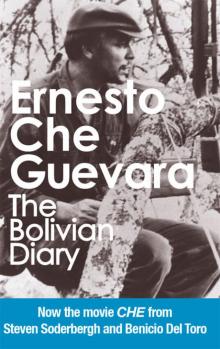 The Bolivian Diary
The Bolivian Diary Caffeine Blues_ Wake Up to the Hidden Dangers of America's #1 Drug ( PDFDrive )
Caffeine Blues_ Wake Up to the Hidden Dangers of America's #1 Drug ( PDFDrive ) The Empty House
The Empty House T Thorn Coyle Evolutionary Witchcraft (pdf)
T Thorn Coyle Evolutionary Witchcraft (pdf)![K J Emrick & Kathryn De Winter - [Moonlight Bay Psychic Mystery 01-06] - A Friend in; on the Rocks; Feature Presentation; Manor of; by Chocolate Cake; A-Maze-Ing Death (retail) (epub) Read online](http://freenovelread.comhttps://picture.efrem.net/img/nienyi/k_j_emrick_and_kathryn_de_winter_-_moonlight_bay_psychic_of_by_chocolate_cake_a-maze-ing_death_retail_epub_preview.jpg) K J Emrick & Kathryn De Winter - [Moonlight Bay Psychic Mystery 01-06] - A Friend in; on the Rocks; Feature Presentation; Manor of; by Chocolate Cake; A-Maze-Ing Death (retail) (epub)
K J Emrick & Kathryn De Winter - [Moonlight Bay Psychic Mystery 01-06] - A Friend in; on the Rocks; Feature Presentation; Manor of; by Chocolate Cake; A-Maze-Ing Death (retail) (epub) Next Day of the Condor
Next Day of the Condor Onyx
Onyx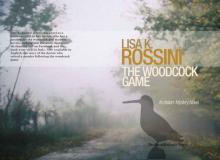 The Woodcock Game: An Italian Mystery Novel
The Woodcock Game: An Italian Mystery Novel Granta 122: Betrayal (Granta: The Magazine of New Writing)
Granta 122: Betrayal (Granta: The Magazine of New Writing) One More Dream
One More Dream Cosa Nostra by Emma Nichols) 16656409 (z-lib.org) (1)-compressed
Cosa Nostra by Emma Nichols) 16656409 (z-lib.org) (1)-compressed Cowboy by J. M. Snyder
Cowboy by J. M. Snyder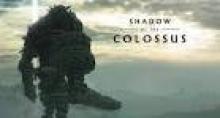 Colossus
Colossus Star Trek - DS9 011 - Devil In The Sky
Star Trek - DS9 011 - Devil In The Sky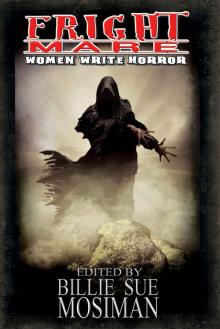 Fright Mare-Women Write Horror
Fright Mare-Women Write Horror The Future Is Japanese
The Future Is Japanese In the Witching Hour
In the Witching Hour Mammoth Books presents Wang's Carpets
Mammoth Books presents Wang's Carpets The Cradle King: The Life of James VI and I, the First Monarch of a United Great Britain
The Cradle King: The Life of James VI and I, the First Monarch of a United Great Britain Stalking Moon
Stalking Moon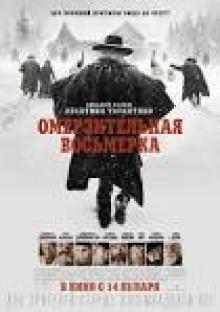 Hostage To The Devil
Hostage To The Devil![Harris, Daisy - Mere Passion [Ocean Shifters 2] (Siren Publishing Classic) Read online](http://i1.bookreadfree.com/i/03/23/harris_daisy_-_mere_passion_ocean_shifters_2_siren_publishing_classic_preview.jpg) Harris, Daisy - Mere Passion [Ocean Shifters 2] (Siren Publishing Classic)
Harris, Daisy - Mere Passion [Ocean Shifters 2] (Siren Publishing Classic) Day, Sunny - Hot in Space (Siren Publishing Ménage and More)
Day, Sunny - Hot in Space (Siren Publishing Ménage and More) Five Books Of The Lives, Heroic Deeds And Sayings Of Gargantua And His Son Pantagruel
Five Books Of The Lives, Heroic Deeds And Sayings Of Gargantua And His Son Pantagruel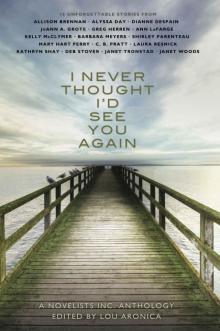 I Never Thought I'd See You Again: A Novelists Inc. Anthology
I Never Thought I'd See You Again: A Novelists Inc. Anthology Billion dollar baby bargain.txt
Billion dollar baby bargain.txt![Chenery, Marisa - Turquoise Eye of Horus [Egyptian Shifters 1] (Siren Publishing Classic) Read online](http://i1.bookreadfree.com/i1/03/26/chenery_marisa_-_turquoise_eye_of_horus_egyptian_shifters_1_siren_publishing_classic_preview.jpg) Chenery, Marisa - Turquoise Eye of Horus [Egyptian Shifters 1] (Siren Publishing Classic)
Chenery, Marisa - Turquoise Eye of Horus [Egyptian Shifters 1] (Siren Publishing Classic) Cat Magic
Cat Magic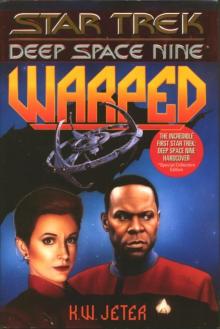 Star Trek - DS9 - Warped
Star Trek - DS9 - Warped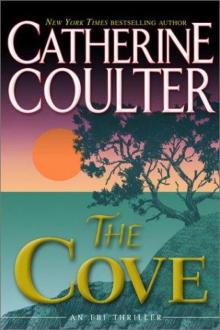 Catherine Coulter - FBI 1 The Cove
Catherine Coulter - FBI 1 The Cove Miranda Lee -The Blackmailed Bridegroom
Miranda Lee -The Blackmailed Bridegroom The Seashell Anthology of Great Poetry
The Seashell Anthology of Great Poetry Dragon Moon
Dragon Moon The Social Costs of Pornography: A Collection of Papers
The Social Costs of Pornography: A Collection of Papers That Is Not Dead
That Is Not Dead Best New Horror: Volume 25 (Mammoth Book of Best New Horror)
Best New Horror: Volume 25 (Mammoth Book of Best New Horror) This Christmas by J. M. Snyder
This Christmas by J. M. Snyder Faerie Cake Dead
Faerie Cake Dead CS-Dante's Twins
CS-Dante's Twins EFD1: Starship Goodwords (EFD Anthology Series from Carrick Publishing)
EFD1: Starship Goodwords (EFD Anthology Series from Carrick Publishing) Echo Burning by Lee Child
Echo Burning by Lee Child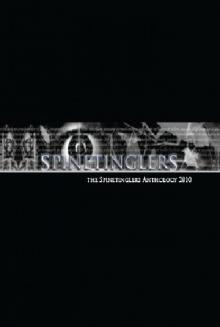 The Spinetinglers Anthology 2010
The Spinetinglers Anthology 2010 Wild Hearts
Wild Hearts Violet Winspear - Sinner ...
Violet Winspear - Sinner ...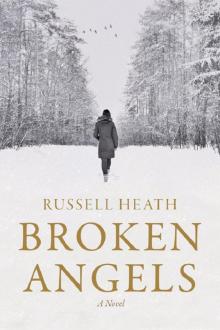 Broken Angels
Broken Angels FearNoEvil
FearNoEvil![Santiago, Lara - Range War Bride [Tasty Treats 11] (Siren Publishing PolyAmour) Read online](http://i1.bookreadfree.com/i1/03/30/santiago_lara_-_range_war_bride_tasty_treats_11_siren_publishing_polyamour_preview.jpg) Santiago, Lara - Range War Bride [Tasty Treats 11] (Siren Publishing PolyAmour)
Santiago, Lara - Range War Bride [Tasty Treats 11] (Siren Publishing PolyAmour) 8 Great Hebrew Short Novels
8 Great Hebrew Short Novels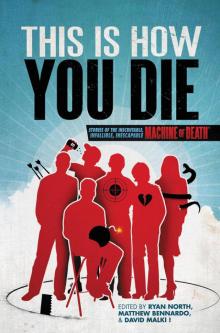 This Is How You Die: Stories of the Inscrutable, Infallible, Inescapable Machine of Death
This Is How You Die: Stories of the Inscrutable, Infallible, Inescapable Machine of Death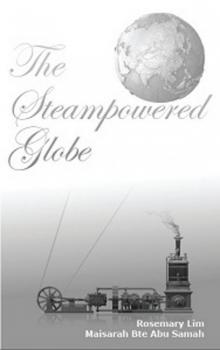 The Steampowered Globe
The Steampowered Globe While We Wait by J. M. Snyder
While We Wait by J. M. Snyder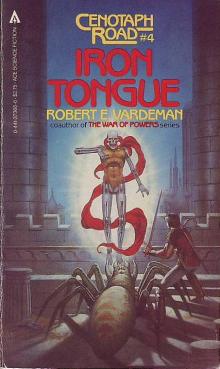 Iron Tongue cr-4
Iron Tongue cr-4![Stieg Larsson [Millennium 02] The Girl Who Played with Fire v5.0 (LIT) Read online](http://i1.bookreadfree.com/i1/03/31/stieg_larsson_millennium_02_the_girl_who_played_with_fire_v5_0_lit_preview.jpg) Stieg Larsson [Millennium 02] The Girl Who Played with Fire v5.0 (LIT)
Stieg Larsson [Millennium 02] The Girl Who Played with Fire v5.0 (LIT)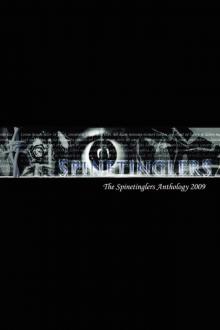 The Spinetinglers Anthology 2009
The Spinetinglers Anthology 2009 Bowles, Jan - Branded by the Texas Rancher (Siren Publishing Classic)
Bowles, Jan - Branded by the Texas Rancher (Siren Publishing Classic) Brown, Berengaria - Vivienne's Vacation (Siren Publishing Ménage and More)
Brown, Berengaria - Vivienne's Vacation (Siren Publishing Ménage and More) Inheritors
Inheritors Arthur Conan Doyle: A Life in Letters
Arthur Conan Doyle: A Life in Letters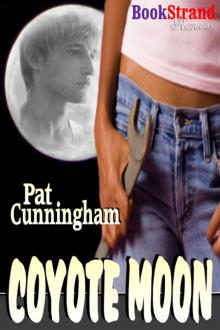 Cunningham, Pat - Coyote Moon (BookStrand Publishing Romance)
Cunningham, Pat - Coyote Moon (BookStrand Publishing Romance)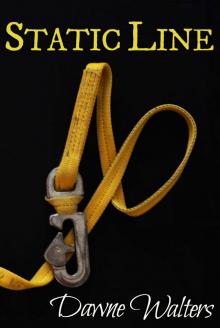 Static Line
Static Line Ghost Mysteries & Sassy Witches (Cozy Mystery Multi-Novel Anthology)
Ghost Mysteries & Sassy Witches (Cozy Mystery Multi-Novel Anthology) Elizabeth Neff Walker - Puppy Love
Elizabeth Neff Walker - Puppy Love Ghosts in the Machine
Ghosts in the Machine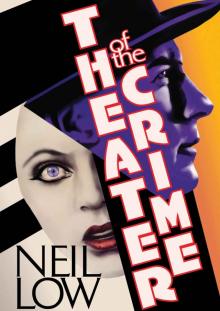 Theater of the Crime (Alan Stewart and Vera Deward Murder Mysteries Book 6)
Theater of the Crime (Alan Stewart and Vera Deward Murder Mysteries Book 6) Red Satin Lips, Book One (The Surrender Series)
Red Satin Lips, Book One (The Surrender Series) Catherine Coulter - FBI 4 The Edge
Catherine Coulter - FBI 4 The Edge StateoftheUnion
StateoftheUnion Fantastic Women: 18 Tales of the Surreal and the Sublime from Tin House
Fantastic Women: 18 Tales of the Surreal and the Sublime from Tin House Sara Wood-Expectant Mistress original
Sara Wood-Expectant Mistress original Nine-to-Five Fantasies: Tales of Sex on the Job
Nine-to-Five Fantasies: Tales of Sex on the Job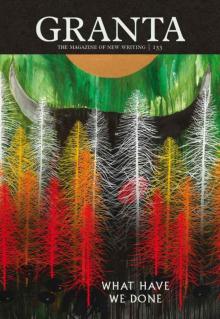 Granta 133
Granta 133 Dream Quest
Dream Quest The Warlock in Spite of Himself wisoh-2
The Warlock in Spite of Himself wisoh-2 Glenn, Stormy - Mating Heat (Siren Publishing Ménage Amour)
Glenn, Stormy - Mating Heat (Siren Publishing Ménage Amour) Davis, Lexie - Toys from Santa (Siren Publishing Classic)
Davis, Lexie - Toys from Santa (Siren Publishing Classic) Once Dead, Twice Shy
Once Dead, Twice Shy McSweeney's Enchanted Chamber of Astonishing Stories
McSweeney's Enchanted Chamber of Astonishing Stories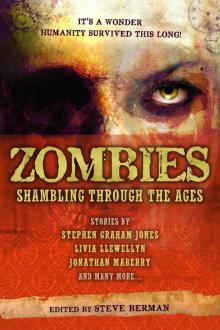 Zombies: Shambling Through the Ages
Zombies: Shambling Through the Ages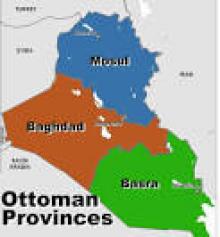 Baghdad Without a Map
Baghdad Without a Map Banshee Cries (the walker papers)
Banshee Cries (the walker papers)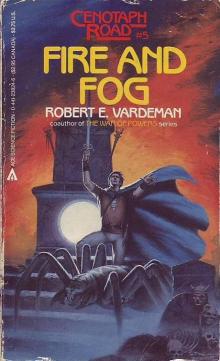 Fire and Fog cr-5
Fire and Fog cr-5 The Twelve Hot Days of Christmas
The Twelve Hot Days of Christmas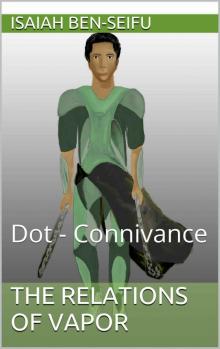 The Relations of Vapor: Dot - Connivance
The Relations of Vapor: Dot - Connivance![Harris, Daisy - Mere Temptation [Ocean Shifters 1] (Siren Publishing Classic) Read online](http://i1.bookreadfree.com/i2/04/11/harris_daisy_-_mere_temptation_ocean_shifters_1_siren_publishing_classic_preview.jpg) Harris, Daisy - Mere Temptation [Ocean Shifters 1] (Siren Publishing Classic)
Harris, Daisy - Mere Temptation [Ocean Shifters 1] (Siren Publishing Classic)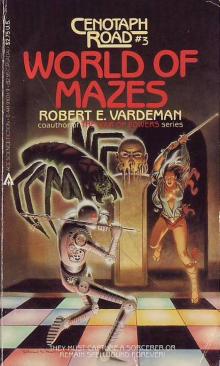 World of Mazes cr-3
World of Mazes cr-3 Mistaken Identity (A Jules Poiret Mystery Book 26)
Mistaken Identity (A Jules Poiret Mystery Book 26)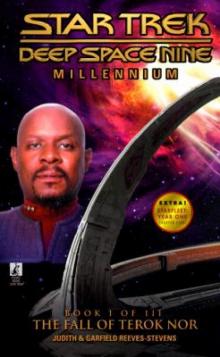 Star Trek - DS9 - Fall of Terok Nor
Star Trek - DS9 - Fall of Terok Nor Not Like I'm Jealous or Anything: The Jealousy Book (Ruby Oliver)
Not Like I'm Jealous or Anything: The Jealousy Book (Ruby Oliver) Skaterboy by J. M. Snyder
Skaterboy by J. M. Snyder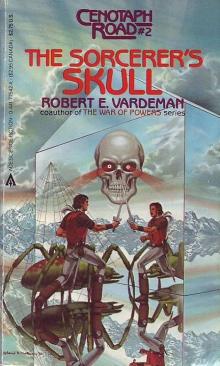 The Sorcerer_s Skull cr-2
The Sorcerer_s Skull cr-2 The Columbia Anthology of Modern Japanese Literature (Modern Asian Literature Series)
The Columbia Anthology of Modern Japanese Literature (Modern Asian Literature Series) New Erotica 5
New Erotica 5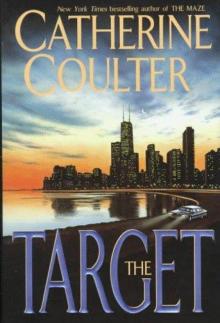 Catherine Coulter - FBI 3 The Target
Catherine Coulter - FBI 3 The Target Best Sex Writing 2013: The State of Today's Sexual Culture
Best Sex Writing 2013: The State of Today's Sexual Culture Factoring Humanity
Factoring Humanity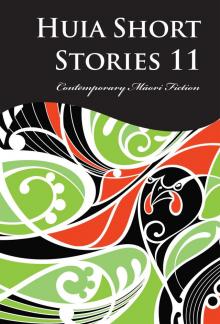 Huia Short Stories 11
Huia Short Stories 11 Call of the Wilds
Call of the Wilds Great English Short Stories (Dover Thrift Editions)
Great English Short Stories (Dover Thrift Editions)![Ramagos, Tonya - Logan's Lessons [Sunset Cowboys 2] (Siren Publishing Classic) Read online](http://i1.bookreadfree.com/i2/04/10/ramagos_tonya_-_logans_lessons_sunset_cowboys_2_siren_publishing_classic_preview.jpg) Ramagos, Tonya - Logan's Lessons [Sunset Cowboys 2] (Siren Publishing Classic)
Ramagos, Tonya - Logan's Lessons [Sunset Cowboys 2] (Siren Publishing Classic)![Morgan, Nicole - Sweet Redemption [Sweet Awakenings 1] (Siren Publishing Allure) Read online](http://i1.bookreadfree.com/i2/04/10/morgan_nicole_-_sweet_redemption_sweet_awakenings_1_siren_publishing_allure_preview.jpg) Morgan, Nicole - Sweet Redemption [Sweet Awakenings 1] (Siren Publishing Allure)
Morgan, Nicole - Sweet Redemption [Sweet Awakenings 1] (Siren Publishing Allure) Warbirds of Mars: Stories of the Fight!
Warbirds of Mars: Stories of the Fight! Original Version of Edited Godwin Stories(lit)
Original Version of Edited Godwin Stories(lit) Where The Hell is Boulevard?
Where The Hell is Boulevard?![Chemical [se]X Read online](http://i1.bookreadfree.com/i2/04/13/chemical_sex_preview.jpg) Chemical [se]X
Chemical [se]X Allison Brennan - See No Evil
Allison Brennan - See No Evil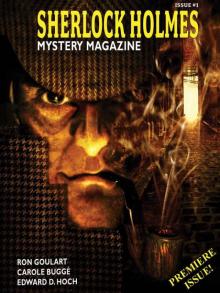 Sherlock Holmes Mystery Magazine #1
Sherlock Holmes Mystery Magazine #1